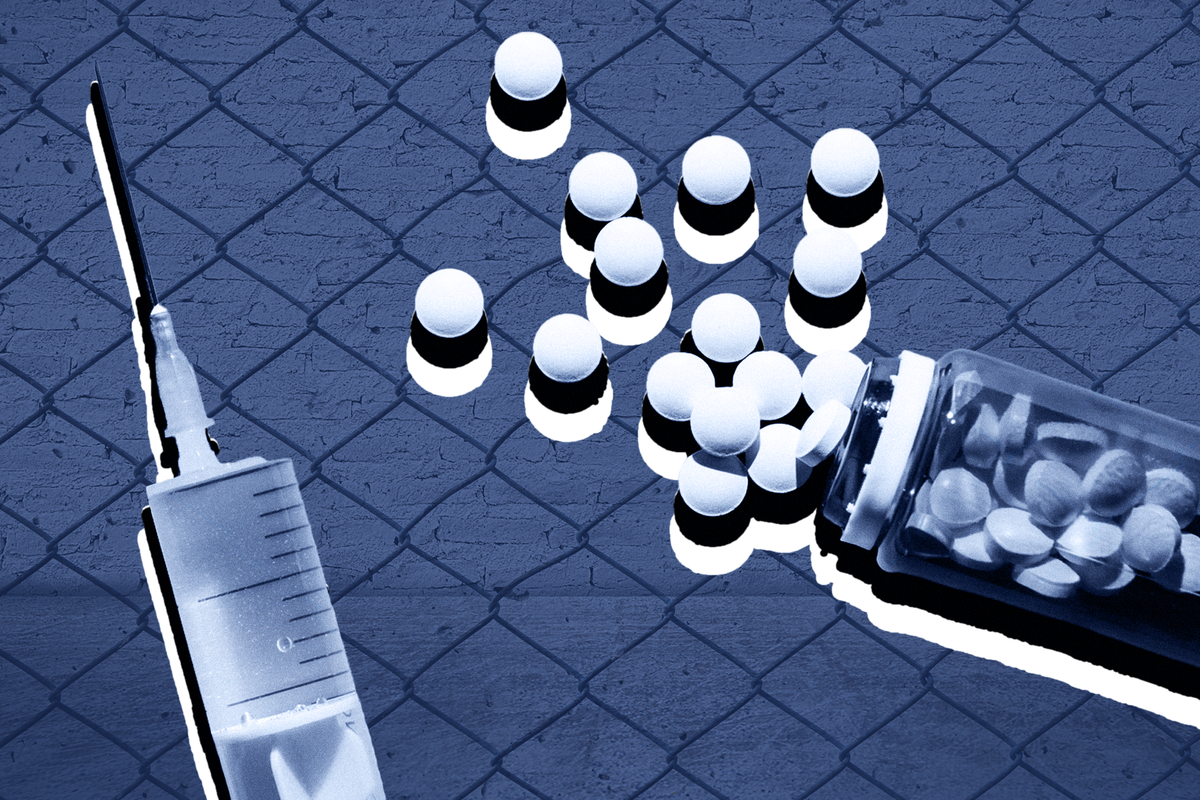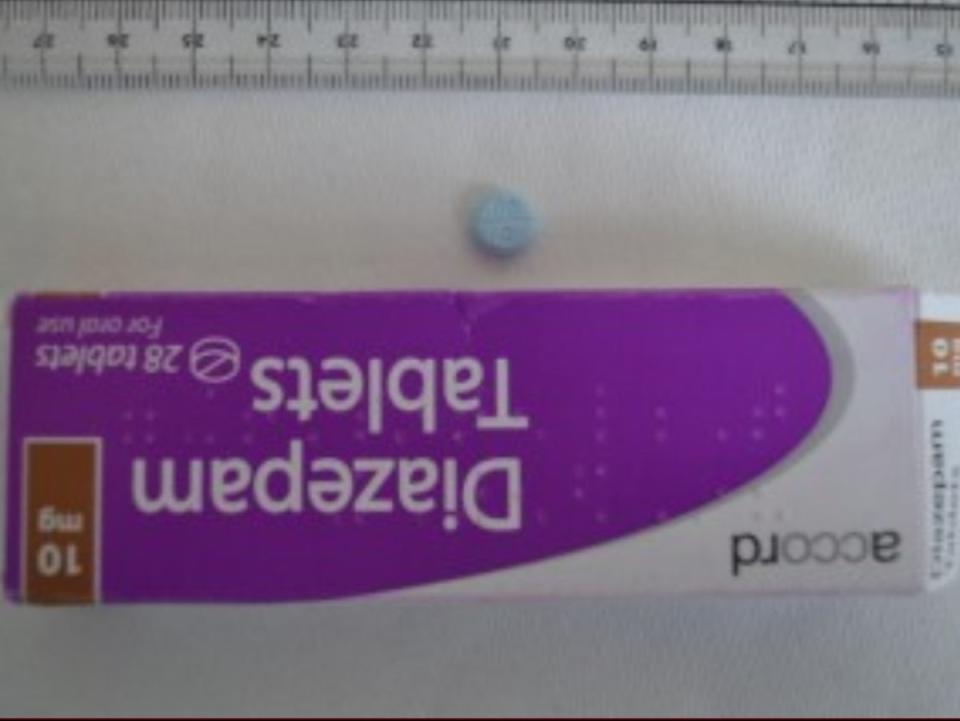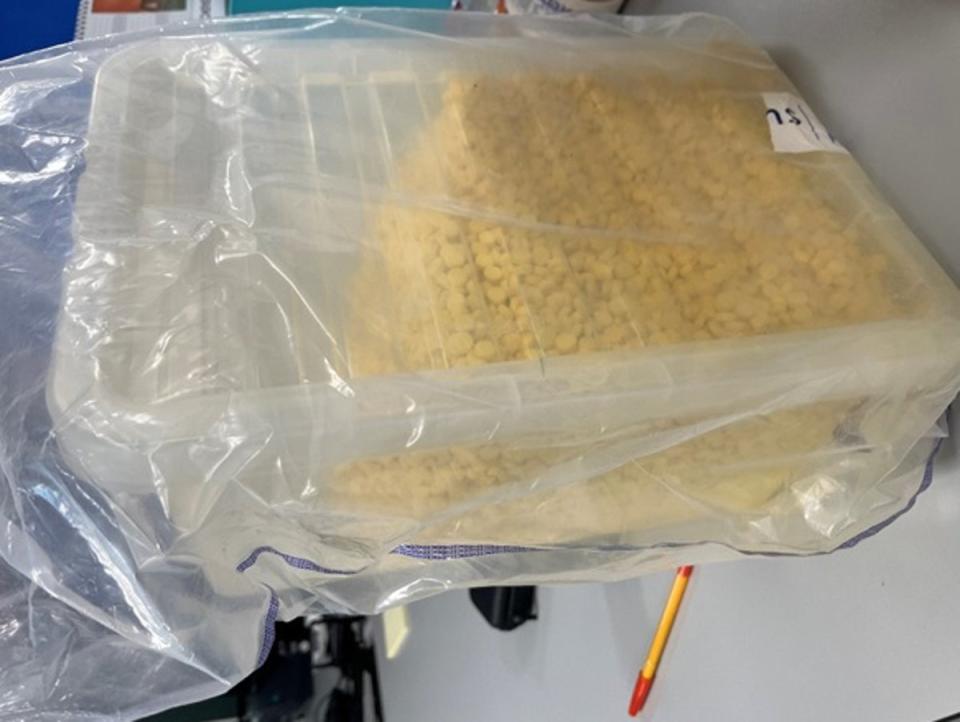Revealed: Deadly epidemic of super-strength Chinese opioids gripping Britain’s streets

Six people in the UK are dying each week from super-strength street drugs made in China which are up to 500 stronger than morphine, The Independent can reveal, in a terrifying escalation in fatalities.
Shocking new figures show 75 additional deaths have been linked to new synthetic opioids called nitazenes in the last 11 weeks to 9 May – bringing the death toll to 176 lives lost in less than a year.
This includes 106 deaths in England, 21 in Wales, 47 in Scotland and two in Northern Ireland since last June, according to the National Crime Agency (NCA).
Experts say the figures are “proof” the lethal drugs are taking hold in Britain after months of warnings of the risk of a US-style opioid epidemic and fear the true scale of the crisis is yet to be uncovered as testing and detection is slow to respond.
One warned: “Everybody on the street knows it’s nitazenes killing people. It’s just our processes and our systems which aren’t reacting quickly enough.”
The figures come as it emerged policing minister Chris Philp last month issued an update to drug partners over the threat posed by nitazenes, warning of a “significant risk” that they could become more prevalent, in a letter seen by The Independent.
Meanwhile the government this week announced plans to expand access to overdose-reversal drug naloxone, so police, paramedics and family members can administer life-saving treatment without a prescription.
Officials also unveiled plans to ban six more synthetic opioids and revealed all new nitazene compounds will automatically be Class As as lawmakers scramble to respond to the rapidly evolving drugs market.
Nitazenes are a group of synthetic opioids so potent that a dose the size of a grain of sand can be fatal. Cheap to ship from China with similar effects to heroin, the substances are flooding the UK drugs market amid constraints hitting traditional heroin supplies after the Taliban banned opium poppy production in Afghanistan.
Worryingly, the powerful drugs have been detected in a range of substances including heroin, cocaine and counterfeit prescription anxiety medication sold as Xanax and Valium.

Musician Dylan Rocha, 21, was one of the first deaths linked to nitazene-contaminated drugs in the UK after he unwittingly purchased heroin laced with isotonitazene – which is 500 times more potent than morphine - after a night out in Southampton in 2021.
Since then deaths have surged, with The Independent revealing that the drugs are claiming lives inside Britain’s prisons following the deaths of Giuseppe Tabone and Andrew Evans at HMP Lewes in summer 2022.
The pair died after falling unconscious shortly after smoking isotonitazene in their cells.
The latest NCA figures represent a dramatic increase in the rate of deaths – with an average of 6.8 fatalities per week in the past 11 weeks – compared to a previous average of fewer than three per week.
Former government drugs tsar Mike Trace, chief executive of the Forward Trust, said the figures are “proof” that nitazenes are gaining a hold in the UK drugs market after months of warnings from treatment agencies.
“This is happening right now on our streets,” he told The Independent. “I am always hesitant to say that this will reach epidemic levels but we have seen in the USA that death rates can be much higher than in the UK and that is a tragedy for everybody involved. A lot of people die young and for families and communities it’s devastating.
“I am loath to say how bad it could get but we just have to look at the US and we really have to act urgently to make sure that doesn’t happen here.”
He welcomed the expansion of access to life-saving naloxone but called for a rapid acceleration in testing services for users who do not know whether drugs have been contaminated, as well as targeted information programmes to warn the public.
He added: “This is not a demand-led phenomenon. It is not drug users saying ‘let’s move to nitazenes’. This is a supply-driven phenomenon. That actually makes things worse because people die from drug overdoses when they don’t know what’s in what they are taking.
“Nitazenes are very pure and very dangerous for overdoses. People will think they are taking tranquilisers or think they are taking cocaine or heroin, but will be killed by the hidden substance. This is why testing is so important.”

Martin Powell, of the Transform Drugs Foundation, said workers were seeing a “definite acceleration” in the prevalence of nitazenes on the streets.
He welcomed the expansion of naloxone availability but warned efforts to criminalise nitazenes will have “zero deterrent effect” on dealers cutting the drugs into already illegal substances.
However he said a lot of coroners are still not screening adequately and the true picture is likely “even bleaker” than the figures suggest, with a suspected overdose cluster in recent weeks in North Devon and nitazenes detected in heroin in Bristol last weekend.
Chris Rintoul, head of harm reduction at charity Cranstoun, fears we are just scratching the surface of the nitazene crisis and the true death toll could be much higher amid record numbers of drug-related deaths.
“We have got an increasingly diverse drugs market,” he told The Independent. “The issue with nitazenes is alive and developing at pace. It seems that it creeps up in lots of different places.”
Last week annual figures from coroners revealed alcohol and drug related deaths reached a 14-year high in 2023, with cases up 16 per cent to 4,603.
Separate Office for National Statistics released earlier this year also showed drug deaths are at the highest level since records began 30 years ago, with nearly half now involving an opiate.
Mr Rintoul said looking at coroner’s reports provides a snapshot but “we can’t assume that all pathologists are screening for all drugs” and preliminary research suggests nitazenes are not detectable if post mortem examinations are delayed.
He added: “We need to take the data with a pinch of salt. The thing that I really use as a ready reckoner for nitazenes is a big cluster of overdoses happening quickly over a short space of time.
“Everybody on the street knows its nitazenes killing people. It’s just our processes and our systems which aren’t reacting quickly enough.”
Mr Rintoul echoed calls for nationalised testing programs which are currently “patchy and piecemeal”.

Drug testing services have been pioneered by harm reduction projects such as WEDINOS drug testing service in Wales and The Loop, based in Bristol, where users can send in samples for testing.
But the government has so far been “squeamish” about testing illegal substances for users, according to Mr Trace.
A BBC investigation last month uncovered evidence that nitazenes are being smuggled into the UK from China hidden in dog food and catering supplies, with the drugs being advertised on social media platforms such as X and SoundCloud.
NCA deputy director Charles Yates said: “Tackling Class A drugs, including synthetic opioids, is a priority for the NCA, policing, Border Force, the Government and the Department of Health and Social Care (DHSC) due to the harm caused to users, society, the economy and communities.
“Law enforcement, the Home Office, public health services and forensic services are proactively monitoring to identify any sudden rise or spike in drug related deaths, in order to act quickly to reduce that threat.
“The NCA, working closely with policing, Border Force and international partners is ensuring that all lines of enquiry are prioritised and vigorously pursued to stem any supply of nitazenes to and within the UK.”
Labour’s Shadow Home Secretary, Yvette Cooper, said: “These are deeply concerning figures which demonstrate the need for urgent measures to prevent the supply of these dangerous drugs.
“Comments from Ministers about the ‘low’ rates of trafficking of synthetic opioids suggest there’s an element of complacency about the terrible risks they pose.
“The Home Office must immediately set out a clear plan to tackle the criminal gangs who are bringing the drugs into the UK, and the street dealers who are peddling them, to ensure they are identified, arrested and brought to justice.”
A government spokesperson said: “Any death from illegal drugs is tragic, and the devastation we have seen them cause in other countries cannot be repeated in the UK.
“That’s why we have already accepted a new definition of nitazenes so they can be automatically controlled as a Class A drug, and placed 14 variations under the tightest controls. We are also expanding access to the life-saving medicine, naloxone, so that more professionals and services can provide the antidote more easily and ultimately, save more lives.”

